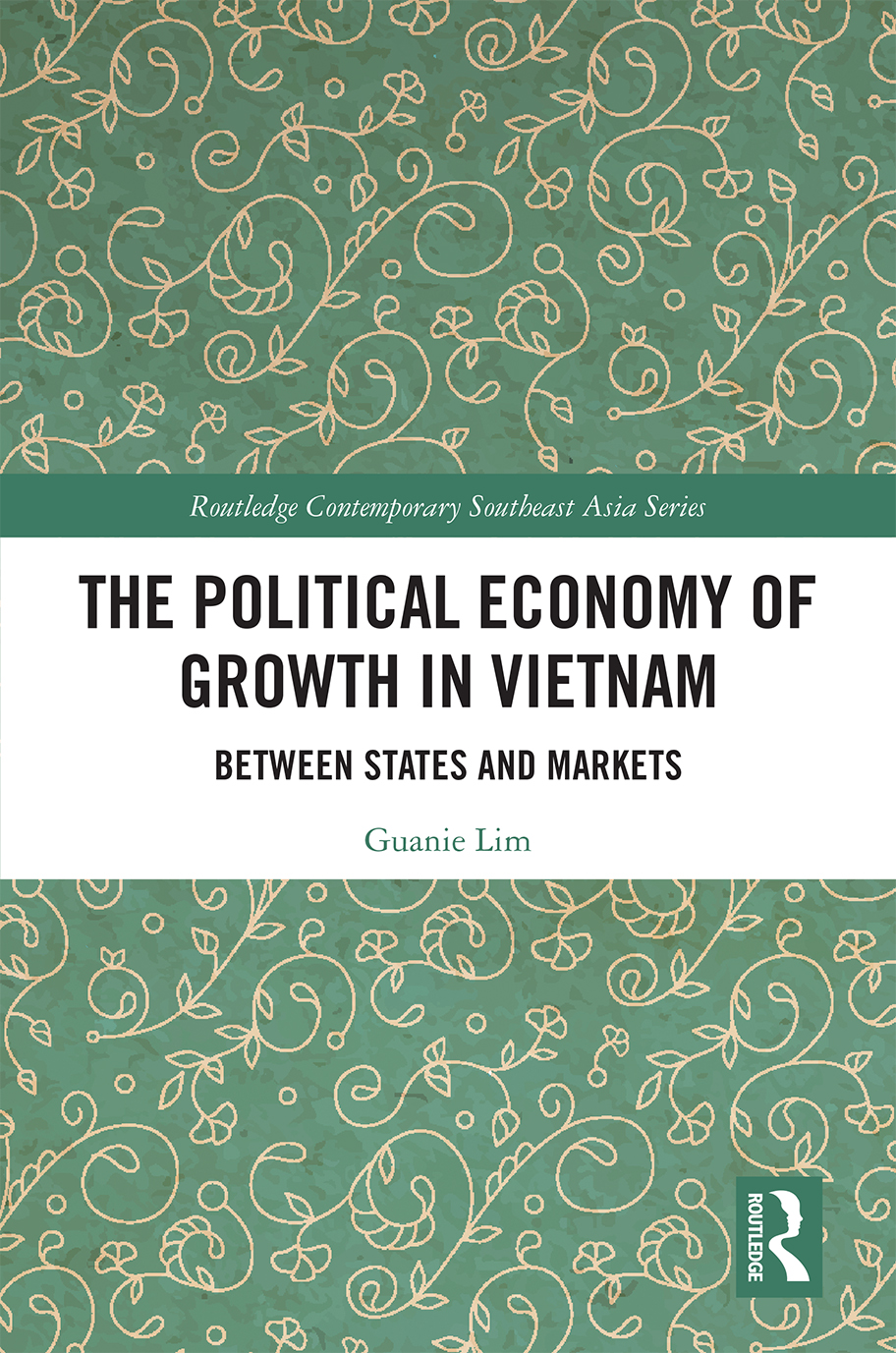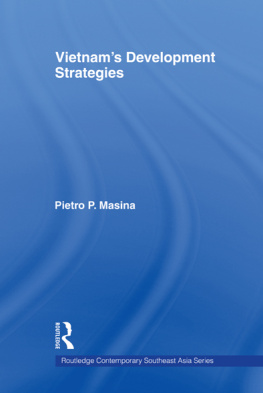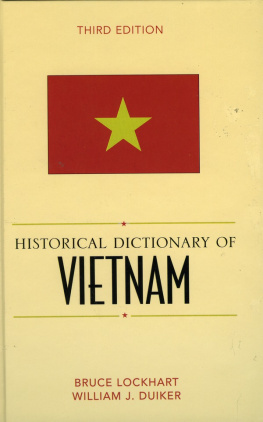
The Political Economy of Growth in Vietnam
Since the doi moi reforms in 1986, Vietnam has experienced a dramatic socioeconomic transformation. Lim examines the role of the state and its interaction with market forces in bringing this change about.
Taking the motorcycle and banking industries as case studies, this book explores the dynamics between the state and transnational corporations in shaping the manufacturing and service sectors, respectively. Vietnam, as one of Southeast Asias quintessential latecomer economies with little prior experience of dealing with transnational corporations, has nevertheless been quite successful in maintaining some control over the impact of foreign direct investment. Yet, the learning outcomes remain highly uneven. In addition, Lim argues that Vietnamese advancement in both industries mirrors only partially the more generalized patterns of state-led development in East Asias earlier batch of latecomer economies. Vietnams case thus presents practical lessons on how to succeed in crafting and utilizing policy instruments to achieve domestic economic and technological upgrading.
This book will be of great interest to scholars of political economy and industrial policy in East Asia, as well as to scholars and policy professionals analyzing approaches to development strategy more broadly.
Guanie Lim is Research Fellow at the Nanyang Centre for Public Administration, Nanyang Technological University, Singapore. His main research interests are comparative political economy, value chain analysis, and the Belt and Road Initiative in Southeast Asia. Guanie is also interested in broader development issues within Asia, especially those of China, Vietnam, and Malaysia.
In the coming years, he will be conducting comparative research on how and why Chinas capital exports are reshaping development in two key developing regions Southeast Asia and the Middle East.
Routledge Contemporary Southeast Asia Series
The aim of this series is to publish original, high-quality work by both new and established scholars on all aspects of Southeast Asia.
Islam, Blasphemy, and Human Rights in Indonesia
The Trial of Ahok
Daniel Peterson
Agent Orange and Rural Development in Post-War Vietnam
Vu Le Thao Chi
Tourism and Development in Southeast Asia
Edited by Claudia Dolezal, Alexander Trupp and Bui T. Huong
Ethnographies of Development and Globalization in the Philippines
Emergent Socialities and the Governing of Precarity
Edited by Koki Seki
The Political Economy of Growth in Vietnam
Between States and Markets
Guanie Lim
ASEAN and Power in International Relations
ASEAN, the EU, and the Contestation of Human Rights
Jamie D. Stacey
The Army and Ideology in Indonesia
From Dwifungsi to Bela Negara
Muhamad Haripin, Adhi Priamarizki and Keoni Indrabayu Marzuki
For more information about this series, please visit: https://www.routledge.com/Routledge-Contemporary-Southeast-Asia-Series/book-series/RCSEA
First published 2021
by Routledge
2 Park Square, Milton Park, Abingdon, Oxon OX14 4RN
and by Routledge
52 Vanderbilt Avenue, New York, NY 10017
Routledge is an imprint of the Taylor & Francis Group, an informa business
2021 Guanie Lim
All rights reserved. No part of this book may be reprinted or reproduced or utilised in any form or by any electronic, mechanical, or other means, now known or hereafter invented, including photocopying and recording, or in any information storage or retrieval system, without permission in writing from the publishers.
Trademark notice: Product or corporate names may be trademarks or registered trademarks, and are used only for identification and explanation without intent to infringe.
British Library Cataloguing-in-Publication Data
A catalogue record for this book is available from the British Library
Library of Congress Cataloging-in-Publication Data
Names: Lim, Guanie, author.
Title: The political economy of growth in Vietnam: between states and markets / Guanie Lim.
Description: New York : Routledge, [2021] |
Includes bibliographical references and index.
Identifiers: LCCN 2020017831 (print) | LCCN 2020017832 (ebook) |
ISBN 9780367333867 (hardcover) | ISBN 9780429321375 (ebook)
Subjects: LCSH: Economic developmentGovernment policyVietnam. | Economic developmentVietnam20th century. | Economic developmentVietnam21st century. | International business enterprisesGovernment policyVietnam. | Motorcycle industryGovernment policyVietnam. | Banks and bankingGovernment policyVietnam.
Classification: LCC HC444.L55 2021 (print) |
LCC HC444 (ebook) | DDC 330.9597dc23
LC record available at https://lccn.loc.gov/2020017831
LC ebook record available at https://lccn.loc.gov/2020017832
ISBN: 978-0-367-33386-7 (hbk)
ISBN: 978-0-429-32137-5 (ebk)
Typeset in Galliard
by codeMantra
Since the ).
The Political Economy of Growth in Vietnam offers a fresh view into the realities of this transformation process by focusing on two of Vietnams leading industries motorcycle and banking. They are important because of their substantial linkages to the rest of the domestic and international economy. For example, much of Vietnams motorcycles and their components are exported after considerable domestic value-added is injected into their production cycles as the country has been earmarked as a regional motorcycle production and export hub by global lead firms. In banking, both established and budding Vietnamese firms draw much of their capital (both short term and long term) from the large state-owned banks that dominate the credit supply market. Put another way, their survival and growth owes much to the vitality of the banking industry (and, by extension, the state-owned banks) (See ).
In view of the impressive industrial transformation, how and to what extent is it driven by the state or Vietnamese policymakers in the latters reform agenda. However, when transposed into the place-specific setting of Vietnam, the resultant power contestation and its shifting dynamic will likely make policy planning and industrial transformation more unpredictable than what is commonly expected. Such a constantly shifting power dynamic in turn circumscribes opportunities for growth and policy options available to the Vietnamese.
With the aforementioned as a backdrop, The Political Economy of Growth in Vietnam brings together a series of careful comparative analysis, first exploring the state versus TNC dynamic in the Vietnamese motorcycle and banking industries. To this end, the commonalities and differences between the two industries will be examined. The book subsequently compares and contrasts the Vietnamese experience of dealing with TNCs vis--vis that of more advanced Asian economies, especially Korea, China, Malaysia, and Thailand. The main theme is how Vietnam, one of Southeast Asias quintessential latecomer economies with little prior experience in dealing with TNCs, manages to push industrial transformation and arrive (either fully or partially) at its desired pathway. The Political Economy of Growth in Vietnam argues that Hanoi has enticed various well-capitalized TNCs to invest into its previously derelict motorcycle and banking industries, ensuring that some value resulting from their foreign direct investment (FDI) is retained and redistributed accordingly. However, one cannot say that the path towards the gains made in these two industries was a bed of roses. The reality reveals a struggle. While the TNCs enjoy more operational freedom in the motorcycle industry, they have not been granted such autonomy in the banking industry as Hanoi and its cohort of SOEs retain considerably more clout in the latter. Notwithstanding the shifting power relations between the state and the TNCs since the 1986
Next page







